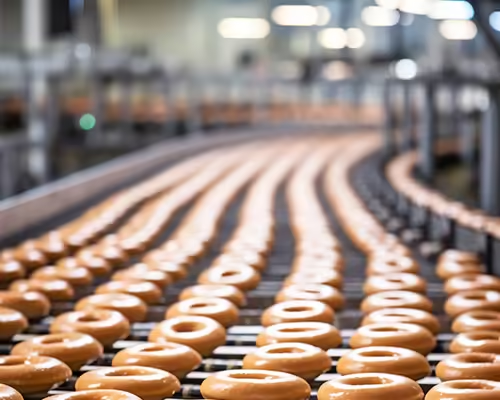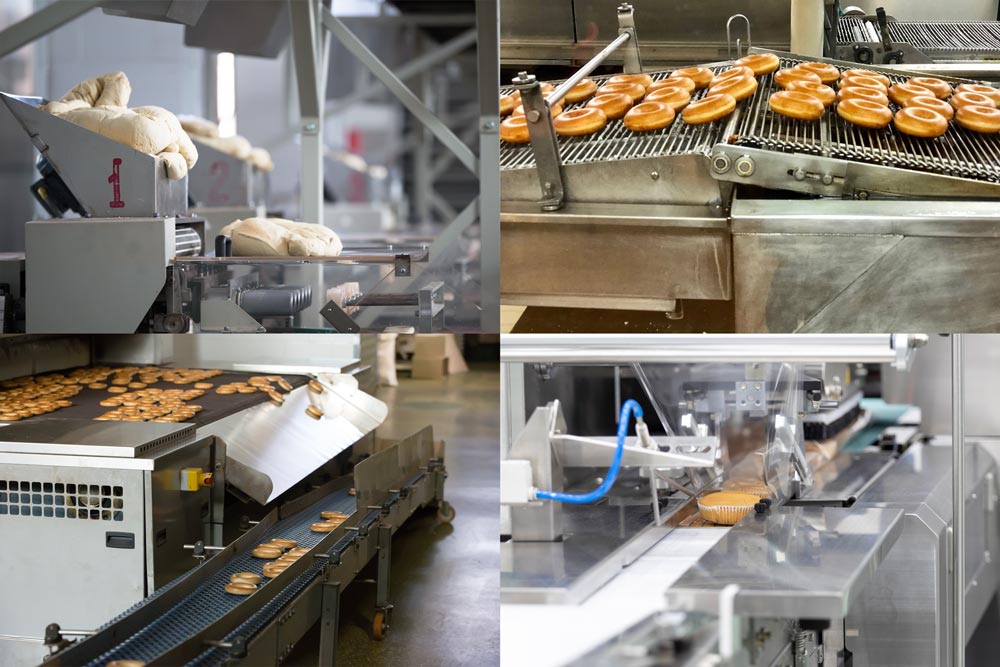


In today’s baking industry, efficiency, consistency, and scalability are more important than ever. Manual processes, though traditional, often can’t keep up with modern production demands. Automated bakery production lines offer a practical solution—ensuring precise control, faster output, and better hygiene throughout the process.
Chengwo, with its dedicated R&D center, focuses on delivering intelligent bakery production lines and tailored equipment solutions. As a leading innovator in the baking machinery sector, Chengwo helps bakeries upgrade their operations to meet current challenges and future growth.

The shift towards automation in baking is not merely a trend; it’s a strategic imperative. As consumer preferences evolve and the global market expands, bakeries must adapt to produce higher volumes with unwavering quality. An automated bakery production line provides the framework for this adaptation, enabling businesses to overcome limitations posed by manual labor and inconsistent processes. From dough mixing to packaging, each step can be meticulously controlled and executed by machinery, leading to a product that consistently meets the highest standards.
One of the most compelling arguments for investing in an automated bakery production line is the dramatic increase in efficiency and throughput. Manual processes are inherently limited by human speed and endurance. Automation, on the other hand, operates continuously with consistent speed, significantly boosting production capacity. This means more products can be manufactured in less time, directly translating to higher sales potential and improved market responsiveness. The optimized flow of an automated bakery production line minimizes bottlenecks and ensures a steady output, crucial for meeting large orders and peak demand.
Maintaining product consistency is a perpetual challenge in baking. Variations in ingredient measurement, mixing times, and baking temperatures can lead to significant differences in the final product. An automated bakery production line eliminates these variables. Precision sensors and computer-controlled systems ensure exact measurements and optimal processing parameters every time. This translates to a uniform product in terms of taste, texture, and appearance, building strong brand recognition and customer loyalty. The consistent quality delivered by an automated bakery production line is a key differentiator in a competitive market.
While the initial investment in an automated bakery production line can seem substantial, the long-term cost savings are significant. Reduced labor costs are a primary factor, as fewer personnel are required to operate the line. Furthermore, automation minimizes waste through precise ingredient handling and optimized processes, leading to less raw material spoilage. The enhanced efficiency also reduces energy consumption per unit produced. Over time, these cumulative savings contribute substantially to the bakery’s profitability, making an automated bakery production line a financially sound decision.
Food safety and hygiene are paramount in the baking industry. An automated bakery production line inherently offers a more controlled and hygienic environment. Reduced human contact with ingredients and products minimizes the risk of contamination. Automated systems are also easier to clean and sanitize, with many designed for quick and thorough wash-downs. This adherence to stringent hygiene standards not only protects consumers but also safeguards the bakery’s reputation and ensures compliance with health regulations. The controlled environment of an automated bakery production line is a major advantage.
Modern bakeries often need to produce a diverse range of products and adapt quickly to changing market demands. An automated bakery production line, particularly modular systems, offers this flexibility. Recipes can be easily programmed and adjusted, allowing for rapid changeovers between different products. As demand grows, an automated bakery production line can often be scaled up by adding more modules or increasing operating hours, without the proportional increase in labor that manual operations would require. This adaptability is crucial for long-term business growth and market agility.
Humans, by nature, are prone to error and fatigue. In a manual bakery, this can lead to mistakes in recipes, inconsistent product quality, and even workplace injuries. An automated bakery production line significantly reduces these risks. Machines perform repetitive tasks with unwavering accuracy, eliminating human error. Furthermore, automation takes over physically demanding and repetitive tasks, reducing the risk of musculoskeletal injuries and improving overall workplace safety for employees who can then be redeployed to more skilled roles. The precision of an automated bakery production line is unmatched.
A modern automated bakery production line often incorporates advanced sensors and software that collect real-time data on every aspect of the production process. This data, ranging from ingredient usage to baking temperatures and product output, provides invaluable insights. Bakeries can use this information to identify inefficiencies, optimize processes, and make data-driven decisions to further enhance their operations. This continuous improvement loop is a significant benefit of an automated bakery production line, leading to ongoing efficiency gains.
Here’s a comparison highlighting key aspects between traditional manual production and an automated bakery production line:
| Feature | Traditional Manual Production | Automated Bakery Production Line |
| Consistency | Varies greatly with human skill | High, precise, and repeatable |
| Production Volume | Limited by labor and time | High, scalable |
| Labor Costs | High, significant ongoing expense | Lower, reduced human intervention |
| Waste Reduction | Moderate, prone to human error | High, optimized ingredient use |
| Hygiene Control | Relies on human practices | High, controlled environment |
| Product Flexibility | Moderate, slower changeovers | High, rapid recipe adjustments |
| Data Insights | Limited, mostly observational | Extensive, real-time data |
| Initial Investment | Low | High |
| Long-Term Profitability | Can be lower due to higher costs | Higher due to efficiency |
Investing in an automated bakery production line is not just about addressing current challenges; it’s about preparing for the future. As technology advances, these systems will become even more sophisticated, offering greater levels of control, efficiency, and customization. Bakeries that embrace automation now will be well-positioned to leverage these future innovations and maintain a competitive edge in a rapidly evolving market. An automated bakery production line is an investment in long-term success.
An automated bakery production line delivers clear advantages—greater efficiency, consistent quality, lower labor costs, and improved food safety. For bakeries aiming to scale and stay competitive, automation is no longer optional—it’s essential. Chengwo leads this shift with advanced, intelligent solutions tailored to modern production needs. Ready to upgrade your operations? Contact us to discover how automation can transform your bakery.
What is an automated bakery production line?
An automated bakery production line is a system of interconnected machinery and software designed to perform various stages of bakery production, from ingredient mixing to packaging, with minimal human intervention. It aims to increase efficiency, consistency, and hygiene.
How does an automated bakery production line improve product consistency?
An automated bakery production line improves consistency by using precise measurements, controlled processing parameters (like temperature and time), and repeatable actions, eliminating variations that can occur with manual labor.
Is an automated bakery production line suitable for small bakeries?
While the initial investment for an automated bakery production line can be significant, the long-term benefits in terms of efficiency, reduced waste, and scalability can make it a worthwhile investment for small bakeries looking to expand and optimize their operations. Modular systems also offer more flexible entry points.
What are the main cost savings associated with an automated bakery production line?
The primary cost savings come from reduced labor expenses, minimized raw material waste due to precision, and potentially lower energy consumption per unit produced. The overall efficiency of an automated bakery production line also contributes to greater profitability.

